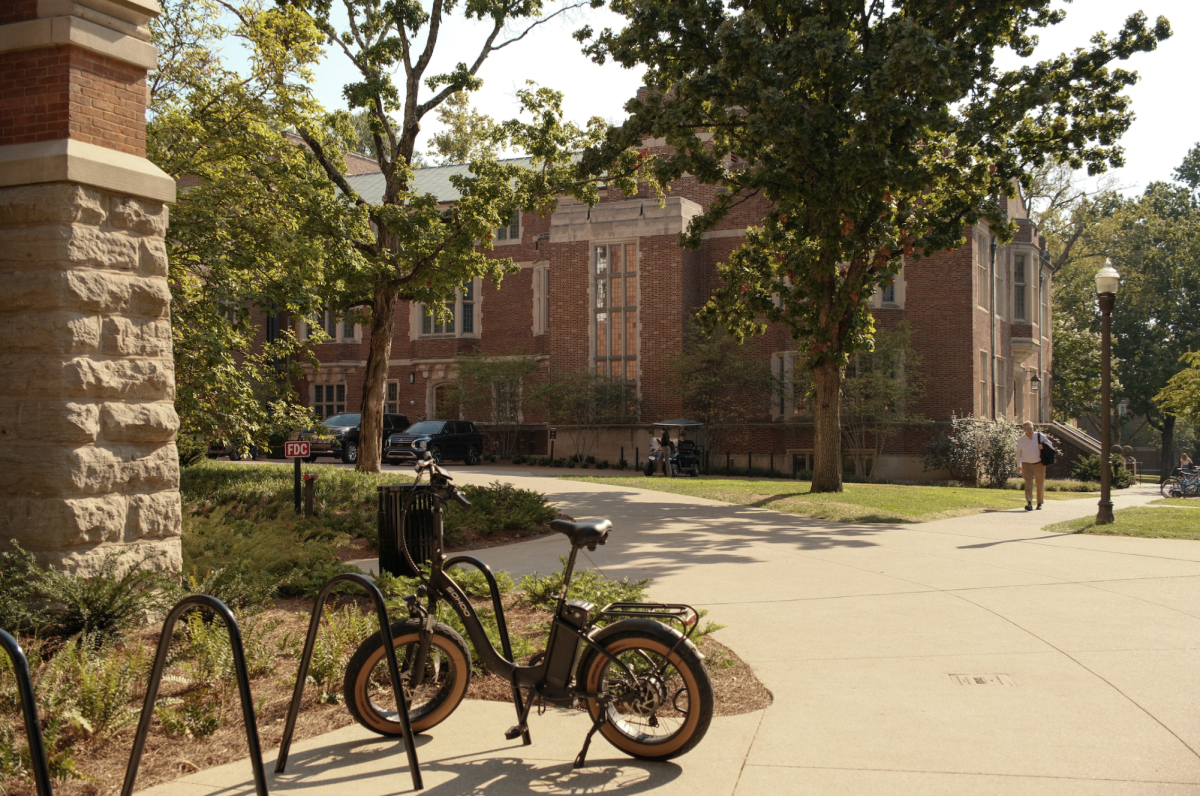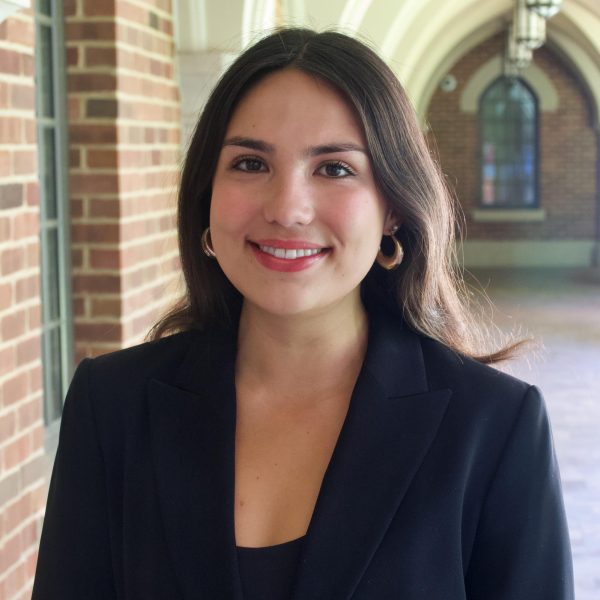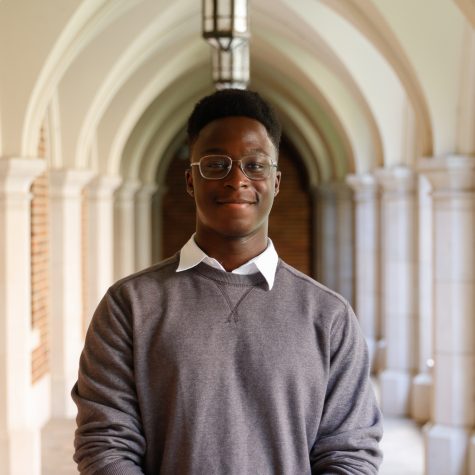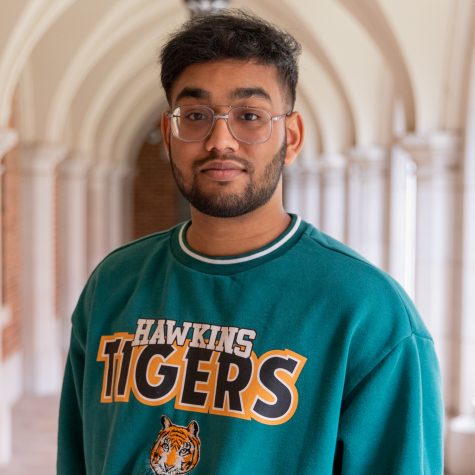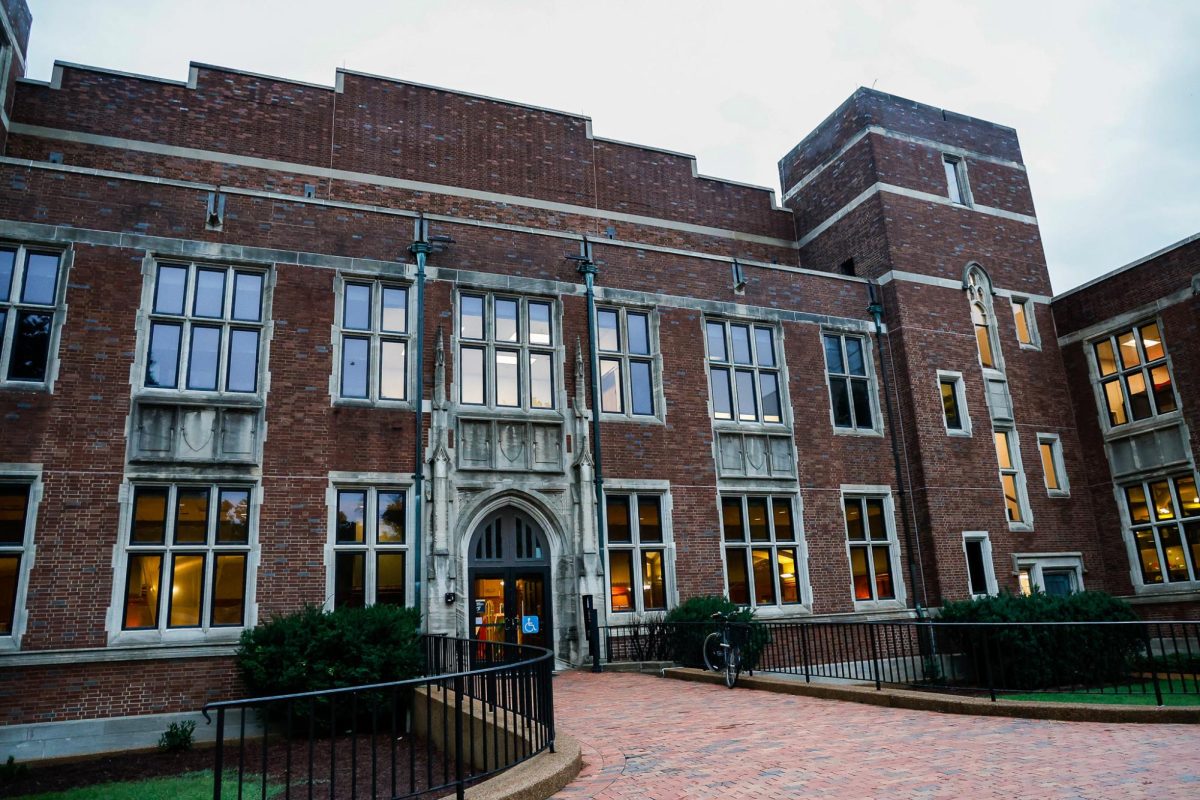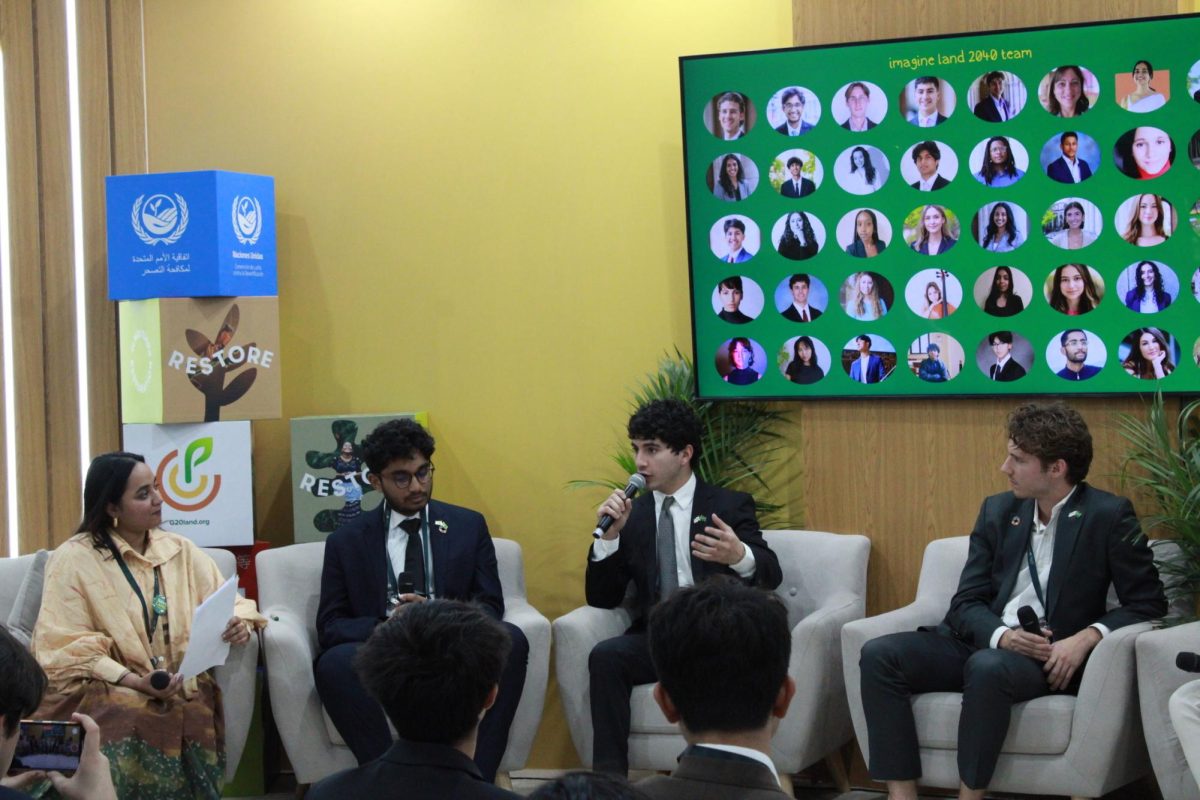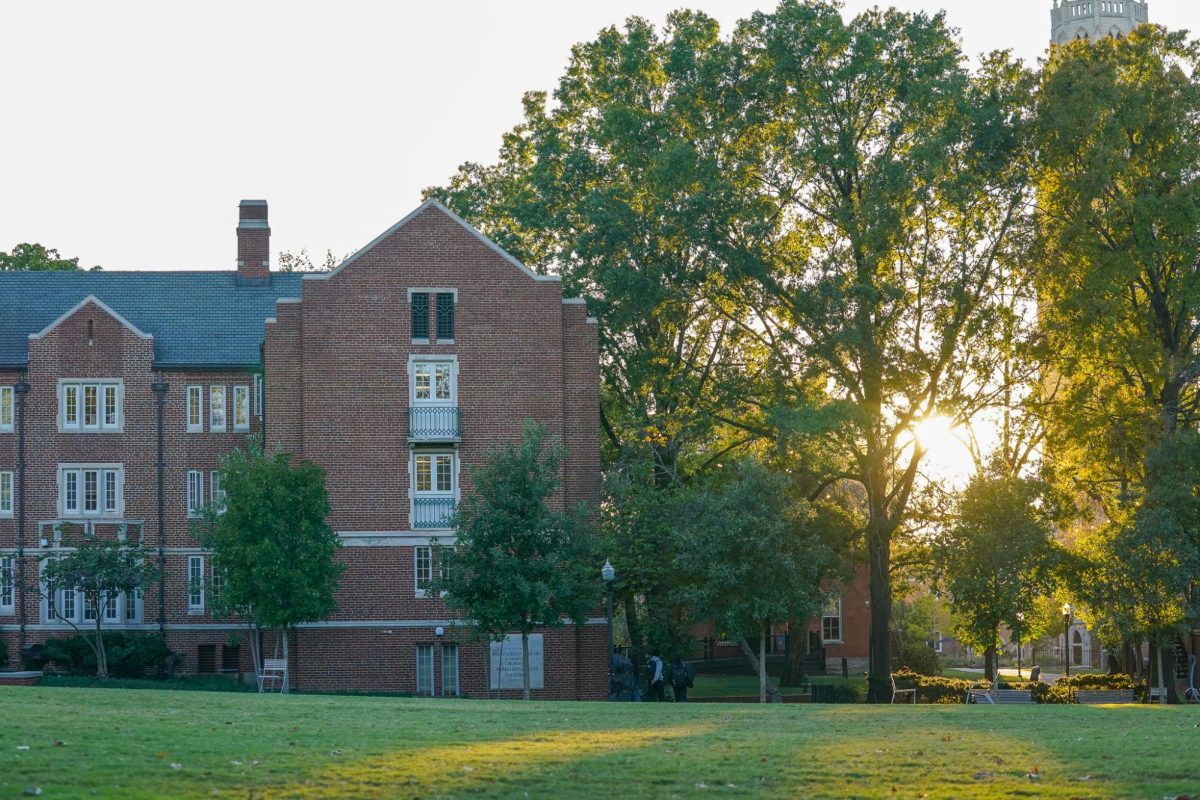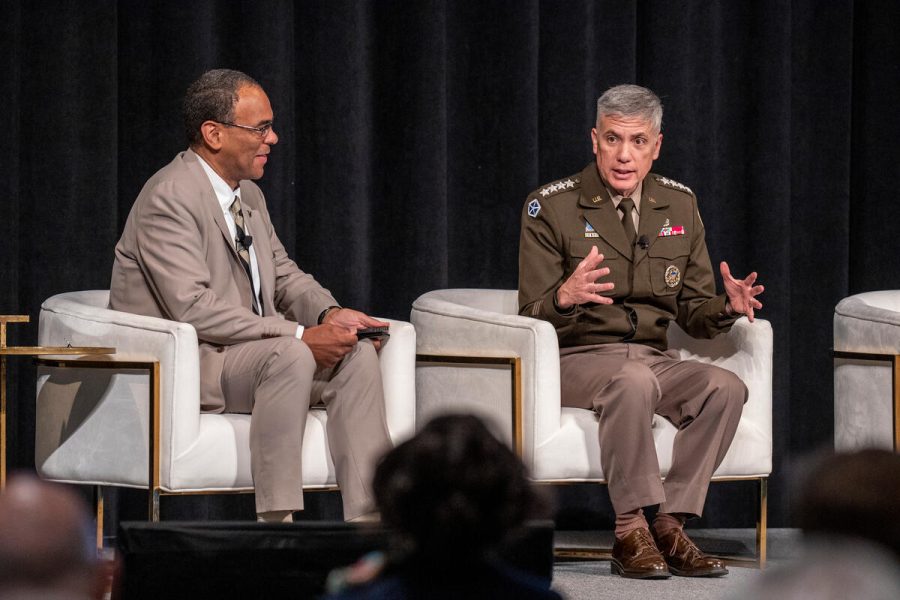The Vanderbilt Institute of National Security launched on Sept. 19, showcasing speakers from the institute’s leadership and uniting national security experts with faculty and students on Vanderbilt’s campus. The institute plans to harness Vanderbilt’s interdisciplinary approach to problem-solving and engage faculty from across the university to address national security threats and develop leaders in the field.
Retired General Paul Nakasone — who formerly served as the commander of U.S. Cyber Command and director of the National Security Agency — is the founding director of the institute. Nakasone was recognized as one of the first partners in the institute’s inception, and his involvement builds upon his discussions at the 2023 Vanderbilt Summit on Modern Conflict and Emerging Threats.
Launch event
Chancellor Daniel Diermeier opened the event by asking attendees to consider the complexity of emerging threats.
“How can we prepare the next generation of leaders to deal with shared security threats, from cybercrime, terrorism [and] global pandemics to nuclear proliferation and climate challenges?” Diermeier said.
Diermeier pointed towards interdisciplinary collaboration as the driving force behind the institute’s work. Diermeier also highlighted Vanderbilt’s unique position to bring experts together and to emerge as a national leader in the security environment.
“Led by our School of Engineering in partnership with our College of Arts and Science and our Peabody College of Development, the institute will build its efforts through four interrelated pillars — educate, innovate, convene and advise,” Diermeier said.
Nakasone then spoke about the rapidly changing security landscape around the world, emphasizing the impact on international relations. He pointed to the rise of “borderless threats,” including cyber security, terrorism, a global pandemic, climate change and fentanyl poisoning.
“No longer is national security simply [about] the U.S.’ ability to protect its sovereignty and secure its borders,” Nakasone said.
Nakasone outlined his vision for the program, stating his hopes to harness Vanderbilt faculty and students to become innovative leaders in national security.
“I came to Vanderbilt to develop the next generation of leaders and leadership, to help solve the wicked problems that our nation faces and to be a part of a world-class university,” Nakasone said.
The event concluded with a Q&A between Morgan Ortagus, former spokesperson for the U.S. Department of State, Nakasone and retired U.S. Navy Admiral Michael Gilday. Gilday pointed to Vanderbilt’s location as an asset to the program.
“In Nashville, your view of what’s going on in Washington is less filtered. You have a clarity of thought to see things perhaps a little bit differently,” Gilday said. “Taking a look at national security and leaving politics aside can really affect your view and how you come at a problem.”
The rest of the Q&A focused on threats to U.S. intelligence, such as competition with the Chinese Communist Party, election interference and AI-driven disinformation.
Sophomore Jeneta Nwosu said she enjoyed the event. She referred to the introductory video presented during the launch, which outlined the institute’s goals and described rising challenges to national security.
“It was impressive, definitely — the fact that we heard from all these big figures in the national community,” Nwosu said. “I think it lends a lot of credence to the new institute and the ever improving reputation of Vanderbilt in general.”
Executive Director and professor of engineering Douglas Adams spoke to The Hustler about the significance of Nakasone’s leadership.
“There was no other school that — after serving his country for 40 years in various roles, including in the highest possible offices in the intelligence community — was the destination for General Paul Nakasone,” Adams said. “His first big decision [after his government service] was to come to Vanderbilt University, so that tells you something about how special this program is.”
Adams described different ways undergraduate students can get involved with the institute, emphasizing the potential network-building opportunities.
“We want to have a series of opportunities for students, ranging from internships, to research experience, to trips to see national security settings,” Adams said. “We want to have opportunities for people to study in places where we partner as the U.S. with people across the world.”
Adams articulated his vision for the program as creating a talent pipeline that will allow Vanderbilt students to emerge as a new generation of leaders in tackling critical national security challenges.
“We’re aiming for the stars,” Adams said. “We want secretaries of homeland security, secretaries of defense — we want the leadership of the national security ecosystem to be Vandy alums.”
Student involvement
Last spring, French professor Holly Tucker led students in a preliminary cybersecurity research program associated with the not-yet-launched Institute of National Security. She is now leading the fellowship cohort for the current immersion program — an undergraduate course called National Defense and Global Security Immersion: AI and Cybersecurity — centered on generative AI and national security, culminating in a student-led project.
Sophomore Vittoria Riedling, a student in the cohort, shared her experience.
“On Fridays, we meet with top leaders from the U.S. intelligence community to discuss modern security concerns and solutions,” Riedling said. “We met with General Nakasone last week, and we’ve met with the cyber command. [We] have representatives from different agencies scheduled for the rest of the semester.”
Riedling said the class will change in the spring to focus on project-oriented involvement.
“Next semester, we’re going to pivot from learning more formally about the intelligence community to doing a project based engagement,” Riedling said. “We are going to be able to apply our knowledge in an actual technical project using artificial intelligence.”

